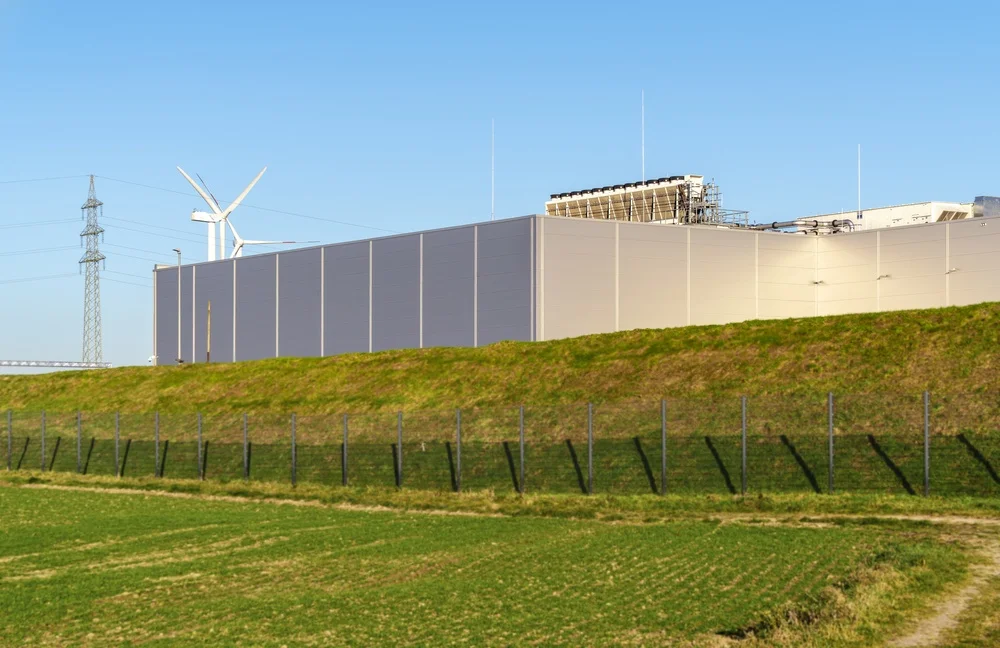
Trump Undermines His Growth Agenda for AI
Leading in AI and helping workers requires the rejection of the economic fallacies of the populist left.
If Republicans are serious about making America the world’s leader in artificial intelligence, and if they truly want to lift workers, they must stop pirating economic policies from the left. The GOP’s ongoing realignment has led to a troubling embrace of protectionism, disturbing flirtations with higher taxes, and the use of class-war rhetoric that’s indistinguishable from progressive talking points.
The irony is that these policies don’t help workers; they hurt workers. And they won’t secure AI leadership; they’ll surrender it.
Many believe winning the AI race is not a symbolic goal but a strategic imperative. Without a thriving, innovation-first ecosystem, America cannot dominate in defense, biotech, advanced manufacturing, or cloud infrastructure. The authors of the recent Executive Order on Reducing the Anti-Competitive Regulatory Barriers seem to understand this point. That E.O. states that "Federal regulations should not predetermine economic winners and losers,” and it plans to remove "Regulations that reduce competition, entrepreneurship, and innovation—as well as the benefits they create for American consumers—should be eliminated."
However, an innovative ecosystem also relies on market-driven capital formation, fast scaling, and wide and ready access to inputs—all of which are undermined by the policies many Republicans now embrace.
Take tax policy. It’s no secret that Democrats have long proclaimed their desire to jack up taxes on the rich and corporations – on wealth and capital – without caring about the negative impact on investment and global competitiveness of the U.S. Until recently, Republicans took the opposite approach. The 2017 Tax Cuts and Jobs Act is a good example of that difference. It lowered the corporate tax rate to 21%, passed full R&D expensing, and introduced other pro-growth provisions. These reforms didn’t favor corporations for the sake of corporations. Instead, these reforms were meant to promote more innovation, higher wages, and better jobs.
Undoing these reforms, including raising taxes on corporations or even on top marginal income earners, as some Republicans are now talking about, would be a self-inflicted wound that Democrats would cheer. And the loudest cheers would come from that party’s left-most flank.
In addition, AI dominance won’t be won in a lab alone; it will be built on a foundation of massive computational power, which depends on abundant, affordable energy. Training large language models, powering data centers, running advanced simulations, and enabling autonomous systems require enormous amounts of electricity. Energy demand from AI and cloud computing is expected to skyrocket over the next decade. This reality means that America’s ability to lead in AI is inseparable from its ability to produce and distribute cheap, reliable energy at scale.
If implemented, the Trump administration's deregulatory agenda would be highly conducive to more energy abundance. However, the protectionist policies embraced by Trump and his populist allies directly and massively threaten this energy future. Tariffs on imported steel, aluminum, solar panels, and critical minerals raise energy infrastructure costs—everything from power lines and substations to wind turbines and battery storage. Add tariffs on other inputs, and you get a full-spectrum attack on the very supply chains needed to support advanced computing. This protectionism is economic self-sabotage disguised as patriotism.
Worse still, tariffs and economic chaos have broader geopolitical consequences. As Adam Thierer of R Street points out, “Trump’s trade war is going to undermine much of the good that Trump’s AI agenda could do, especially by driving old allies right into the arms of the Chinese govt.” He warns that U.S. allies like the EU might soon “cut a deal with the CCP to run DeepSeek & other Chinese AI on everything and box out US AI apps entirely.” In other words, protectionism isn’t just bad economics; it’s a strategic gift to Beijing.
If America wants to dominate AI, it must be the easiest place in the world to build data centers, deploy energy infrastructure, and scale up high-tech manufacturing. It cannot afford a bureaucratic maze with artificially inflated costs. Protectionism doesn't protect American workers; it protects inefficiency. Tariffs are a tax on us, and they are a tax especially on the very future we claim to want. In the race for AI, where speed and scale are everything, inefficiency is fatal.
Unfortunately, the need to defend the president’s protectionist policies and their wealth destruction has also led some administration members, Treasury Secretary Scott Bessent in particular, to embrace one of Democrats’ favorite economic myths: pitting Wall Street against Main Street. Peddling this myth was recently decried by the Editorial Board of the Wall Street Journal, who wrote in response to Trump-era tariff rhetoric:
Everyone wants Main Street to prosper, but pitting Wall Street against the rest of the country is one of the hoariest pages in the faux populist handbook… Wall Street as defined by the stock and financial markets is integral to prosperity on Main Street.
Exactly. Financial markets aren’t the enemy of working people; they’re how businesses get funded, workers get hired, and retirements get secured. About 60% of Americans own stocks directly or through retirement accounts. When tariffs or taxes spook the market, it’s not hedge funds that suffer most; it’s middle-income Americans watching their 401(k)s shrink.
Capital and labor are not adversaries. They are partners in economic growth. Republicans tempted by a class-warfare rhetoric should remember this bit of wisdom from the great economist Thomas Sowell. He said:
It was Thomas Edison who brought us electricity, not the Sierra Club. It was the Wright brothers who got us off the ground, not the Federal Aviation Administration. It was Henry Ford who ended the isolation of millions of Americans by making the automobile affordable, not Ralph Nadder.
Those who have helped the poor the most have not been those who have gone around loudly expressing “compassion” for the poor, but those who found ways to make industry more productive and distribution more efficient, so that the poor today can afford things that the affluent of yesterday could only dream about.
The future belongs to the country that gets its policies right—policies on innovation, labor, capital, and trade. America has every advantage: world-class institutions, an entrepreneurial culture, deep and sophisticated capital markets, and a skilled workforce. But we risk squandering all of it by peddling bad ideas borrowed from the left.
Populist slogans will not win the AI race, tariffs will not build resilient supply chains, and higher taxes will not create high-wage jobs. Republicans once understood this reality. If they want to lead again, they should stop railing against the free market and build a future that works for everyone.
Veronique de Rugy is the George Gibbs Chair in Political Economy and Senior Research Fellow at the Mercatus Center at George Mason University and a nationally syndicated columnist. She is a contributing editor to Civitas Outlook.
Economic Dynamism

Unlocking Public Value: A Proposal for AI Opportunity Zones
Governments often regulate AI’s risks without measuring its rewards—AI Opportunity Zones would flip the script by granting public institutions open access to advanced systems in exchange for transparent, real-world testing that proves their value on society’s toughest challenges.

The Causal Effect of News on Inflation Expectations
This paper studies the response of household inflation expectations to television news coverage of inflation.

Downtowns are dying, but we know how to save them
Even those who yearn to visit or live in a walkable, dense neighborhood are not going to flock to a place surrounded by a grim urban dystopia.

The Housing Crisis
Soaring housing costs are driving young people towards socialism—only dispersed development and expanded property ownership can preserve liberal democracy.
.webp)
California’s Proposed Billionaire Tax and Its Portents for Normal People
The deeper significance of California's billionaire tax is in how it redefines what it means to own property in the United States.

The Civitas Outlook Energy Symposium
Energy policy in America has become, over the past few decades, one of the most fraught debates in American politics.


.avif)

.jpeg)




.jpg)



.webp)

